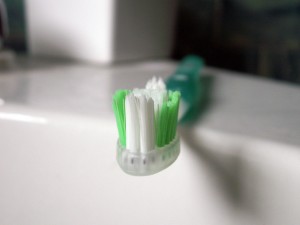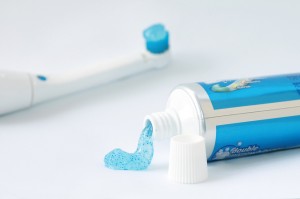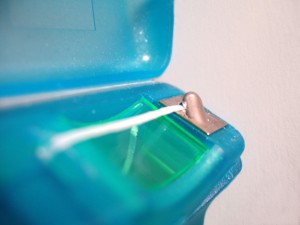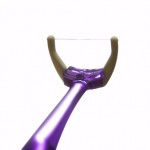Here at Redcliffe Smiles we are passionate about sharing valuable information about preventative dental care. This helps ensure that our patients have the best possible understanding on how to maintain good oral hygiene in between dental visits.
Why is a professional clean so important?
 Brushing twice a day and flossing at least once a day it important but this alone will not completely care for your teeth. Food and debris can become trapped under your gums where your toothbrush and floss cannot reach. If left untreated, over a period of time this can cause problems such as decay or periodontal (gum) disease.
Brushing twice a day and flossing at least once a day it important but this alone will not completely care for your teeth. Food and debris can become trapped under your gums where your toothbrush and floss cannot reach. If left untreated, over a period of time this can cause problems such as decay or periodontal (gum) disease.
Signs of bleeding while brushing and flossing are indicators of unhealthy gums. The gums become inflamed and irritated. This is caused by a build-up of bacteria in the crevices and gaps surrounding your teeth and beneath your gums.
To avoid gum problems and cavities it is recommended that you see a dentist once every six months for a professional clean and evaluation.
At Redcliffe Smiles we use specialised tools designed to remove plaque and bacteria above and below the gums. This helps to maintain optimum oral health and minimise the potential for expensive dental procedures in the future.
How can I care for my teeth after my professional clean?
Are you aware that there is a correct way to brush? Brushing correctly takes at least two minutes, most of us don’t even come close to that time. Tilt the brush at a 45 degree angle against the gum line, flick away from the gums and use short, gentle strokes. Make sure to pay extra attention to the gum line itself and hard to reach areas in the mouth (such as back teeth, crowns or any other restorations).
- Clean the outer surfaces of your upper teeth, then your lower teeth
- Clean the inner surfaces of your upper teeth, then your lower teeth
- Clean the chewing surfaces
- Don’t forget to brush your tongue to remove bacteria and to freshen your breath.
What Type of Toothbrush Should I Use?
Choosing the right toothbrush is extremely important, a soft-bristled brush or powered toothbrush is best for removing plaque and debris from your teeth. Small-headed brushes are also preferable, since they can get the hard to reach areas of the mouth.
How important is the Toothpaste I Use?
If you look in the shops for a toothpaste you will notice there is a wide variety to choose form. Each may be designed for specific uses including, cavity protection, protection from gingivitis, whitening, stained teeth and sensitivity.
During your general check-up and clean our dentists can assess your mouth and can recommend the best toothpaste option based on your dental needs.
How Often Should I Replace My Toothbrush?
It is recommended that you replace your toothbrush when it begins to look worn or every three months, whichever comes first.
By maintaining a consistent oral health regime, practising proper cleaning techniques and visiting us for your regular clean and oral evaluation, you’ll be well on the way to maintaining a healthy smile and keeping your teeth for a life.




